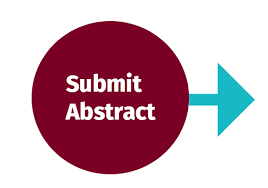Epigenetics & Chromatin
Epigenetics is the study of the configuration and chemistry of DNA in chromosomes and changes in gene expression patterns that cannot be traced to the DNA sequence. Unlike phenotypes that are associated with mutations in the underlying DNA code, epigenetic changes involve heritable covalent modifications to chromatin structure, such as DNA methylation and histone modification. Here we highlight common epigenetic markers, the techniques used to study them, and their role in biology and human disease. DNA is stored in a highly structured complex called chromatin. Epigenetic processes control gene expression by altering chromatin structure (Figure 1). Actively transcribed genes are associated with accessible chromatin regions, while transcriptionally silent genes are found in inaccessible chromatin regions. These modifications made to DNA and proteins, which impact chromatin structure, are referred to as epigenetic markers (or marks) and subsequently inherited as they are passed on through rounds of cell division.
- DNA Methylation. DNA methylation works by adding a chemical group to DNA
- Histone modification. DNA wraps around proteins called histones
- Non-coding RNA. Your DNA is used as instructions for making coding and non-coding RNA.
Related Conference of Epigenetics & Chromatin
21th World Congress on Tissue Engineering Regenerative Medicine and Stem Cell Research
16th International Conference on Human Genetics and Genetic Diseases
19th International Conference on Genomics & Pharmacogenomics
Epigenetics & Chromatin Conference Speakers
Recommended Sessions
- Cancer Genetics
- Animal Genetics
- Bioinformatics
- Biomarkers
- Cytogenetics
- Epigenetics & Chromatin
- Forensic Genetics
- Genetic Disorders
- Genetics
- Genome Integrity
- Human Genetics
- Molecular and Cellular Genetics
- Molecular biology
- Neurogenetics
- Nutrigenetics
- Pediatric Geneticist
- Plant Genetics And Molecular Pharming
- Regulatory and Safety Aspects of Cell and Gene Therapy
- Reproductive Genetics/Prenatal Genetics
Related Journals
Are you interested in
- 3D Bioprinting, Organ Fabrication & Bioartificial Tissues - Stem Cell 2026 (Netherlands)
- Aging Biology, Longevity Science & Cellular Rejuvenation - Stem Cell 2026 (Netherlands)
- Artificial Intelligence and Computational Biology in Regenerative Medicine - Stemgen 2026 (Japan)
- Bioinformatics, AI Models & Predictive Regeneration - Stem Cell 2026 (Netherlands)
- Biomaterials and Nanotechnology in Regenerative Medicine - Stemgen 2026 (Japan)
- Cancer Stem Cells & Targeted Therapeutics - Stem Cell 2026 (Netherlands)
- Cancer Stem Cells and Oncology - Stemgen 2026 (Japan)
- Cardiac, Vascular & Musculoskeletal Regeneration - Stem Cell 2026 (Netherlands)
- Cardiovascular Regeneration - Stemgen 2026 (Japan)
- Clinical Translation of Stem Cell Therapies - Stem Cell 2026 (Netherlands)
- Clinical Trials and Translational Stem Cell Research - Stemgen 2026 (Japan)
- Commercialization, Biobanking & Industry Innovations - Stem Cell 2026 (Netherlands)
- Ethical, Legal, and Social Implications in Stem Cell Research - Stemgen 2026 (Japan)
- Ethical, Regulatory & Quality Control Frameworks - Stem Cell 2026 (Netherlands)
- Exosomes, Extracellular Vesicles & Cell-Free Therapeutics - Stem Cell 2026 (Netherlands)
- Future Trends: Organoids, Bioengineering, and Next-Generation Therapies - Stemgen 2026 (Japan)
- Gene Editing and CRISPR Technologies - Stemgen 2026 (Japan)
- Gene Editing, CRISPR Therapies & Regenerative Genomics - Stem Cell 2026 (Netherlands)
- Induced Pluripotent Stem Cells (iPSCs) and Reprogramming - Stemgen 2026 (Japan)
- Mesenchymal Stem Cells (MSCs) in Therapy - Stemgen 2026 (Japan)
- Regeneration in Neurodegenerative & Spinal Cord Disorders - Stem Cell 2026 (Netherlands)
- Regenerative Approaches in Diabetes & Metabolic Disorders - Stem Cell 2026 (Netherlands)
- Regenerative Dentistry and Craniofacial Applications - Stemgen 2026 (Japan)
- Regenerative Immunology & Immune Modulation - Stem Cell 2026 (Netherlands)
- Regenerative Medicine and Tissue Engineering - Stemgen 2026 (Japan)
- Stem Cell Banking and Cryopreservation - Stemgen 2026 (Japan)
- Stem Cell Biology and Cellular Mechanisms - Stemgen 2026 (Japan)
- Stem Cell Engineering & Cellular Reprogramming - Stem Cell 2026 (Netherlands)
- Stem Cells in Neurological and Neurodegenerative Disorders - Stemgen 2026 (Japan)
- Tissue Engineering, Biomaterials & Smart Scaffolds - Stem Cell 2026 (Netherlands)

